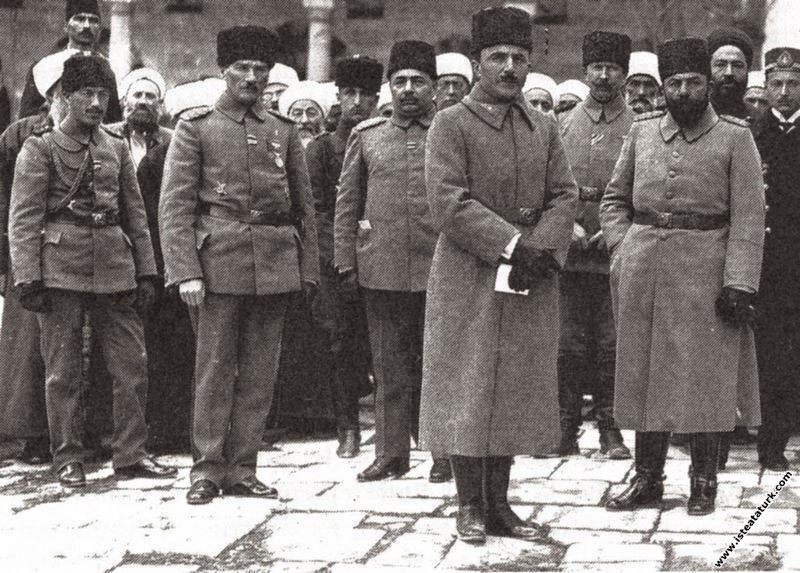the 7th Army, within the Yıldırım Army Group (YAG). In
in this portion of his story, Major Vecihi relates how
Mustafa Kemal took umbrage at German high-handedness
in Palestine, amply criticized by Major Vecihi herewith.//

Without letting even a tiny stain rest on their pure foreheads in the
great calamity that was The Great War, the Turks exhibited remarkable
administrative and military service, sacrificing their lives in defense of
the nation and exposing their bodies to anxiety and violence. Turkey
and the Turks should know who these great men and commanders were.
During these battles a patriotic commander had to fight the war on 3
fronts - with his own superiors, with the Germans, and with the actual
enemy on the battlefront.
Sometimes, the commander-in-chief (Enver Paşa) would issue orders
at odds with the benefits of the Turkish Army and the nation and more
to the liking of Germany's admirers, even more than the Germans
themselves. For a soldier not to implement such orders and oppose
that great office was more than difficult. To appreciate this, it is not
enough just to be a soldier but, rather, to have actually been placed in
such a situation.

When it comes to the Germans, despite the notion of a "common goal",
they served only for the interests of Germany and not for the interests
of the Turks. In order to lighten their load in Europe, the Germans
hoped to steer enemy armies to Turkey's battlefronts to the extent
possible, so they would instigate attacks that were sometimes timely,
sometimes not, and sometimes necessary and sometimes not. And
they had no trouble persuading the top commander (Enver Paşa),
whenever they needed to.
It was calamitous for anyone to oppose the Germans' wishes but it was
even more calamitous, for our army and nation, to agree to their every
desire. In a particular type of activity, one had to choose between
self-preservation and the needs of the homeland. Because the Germans
knew well who their admirers were and they had no trouble having
those who opposed them dismissed from the Ottoman Army or, at
least, having their opponents distanced from matters they considered
important.

7th Army Commander Mustafa Kemal Paşa in Damascus in
1917, second from left, with Enver Paşa and Cemal Paşa,
second and first from right, respectively.
When General Falkenheim became the head of the YAG he had a
warchest of 6 million in gold. He was the defacto dictator of Arabia,
distributing money, wheat, robes and awards to the Bedouin chiefs,
as if to win their allegiance to the Ottoman State. In reality, with
every move he made he aimed to sway the Arabs to Germany and the
Kaiser.
Falkenheim was able to get the best Turkish commanders to work for
him because the knew very well that Turkish commanders understood
the fighting ways of the obedient Turkish soldiers better than German
commanders did. Then, together with arranging everything according
to his own wishes, he established and began to implement a fighting
style in Palestine that could only be conducted with the German Army
in charge.
So the Turkish Army was distressed by having to engage in constant
and meaningless assaults, advances and withdrawals that were meant
to show the Germans in a good light, at the expense of the Turks. The
first to speak up against this situation was Mustafa Kemal Paşa, the
7th Army Commander. When his objections were ignored he resigned
and left, because it was unclear anymore whether Turkey belonged to
the Turks or to the Germans. The Germans' arbitrary power had
reached that level. This sentence of degradation could not be be
tolerated, so contrary was it to the manly inheritance passed down
by the Turks' forefathers.
//END of PART XII//

Hiç yorum yok:
Yorum Gönder